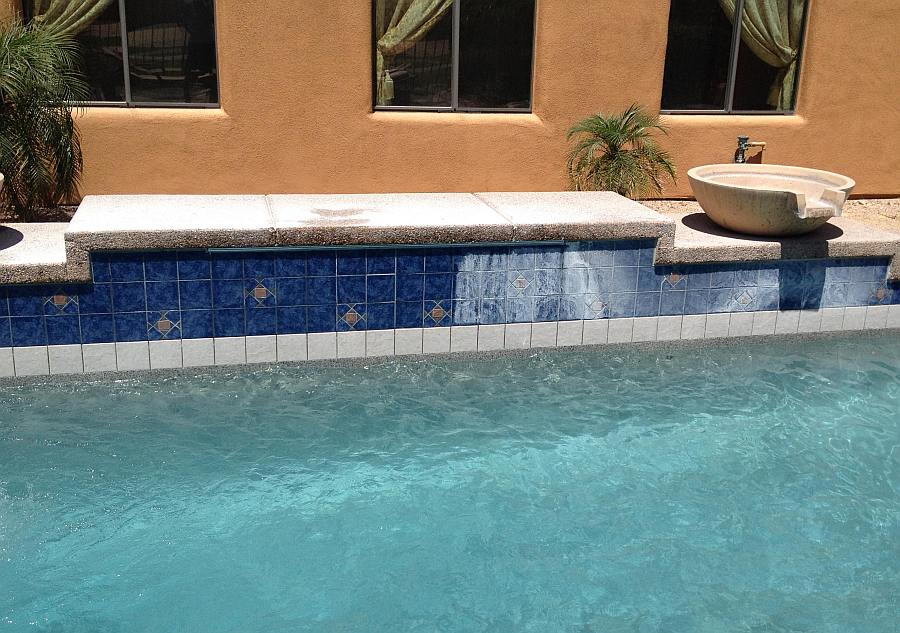When it comes to maintaining a beautiful and welcoming swimming pool, numerous homeowners focus on the water quality and landscaping, often overlooking one crucial aspect: pool tile cleaning. Grimy or stained tiles not just affect the overall look of your pool but can also lead to more serious issues in the future. Understanding why pool tile cleaning is more important than you think is the first step in ensuring your pool remains a tranquil oasis for relaxation and fun.
Now, how often should you clean your pool tiles? Consistent maintenance is key to preventing calcium buildup and other unsightly stains that can diminish your pool's allure. Whether you decide to tackle the cleaning on your own or enlist the help of professional services, knowing the right methods and timing can help you save time, effort, and money. In this article, we will discuss the best practices for keeping your pool tiles sparkling clean, the benefits of professional cleaning services, and the frequently ignored reasons why a clean pool can enhance your outdoor space.
Importance of Pool Tile Cleaning
Swimming pool tiles cleaning is often overlooked, but it plays a important role in maintaining the overall health of your swimming environment. Well-maintained tiles enhance the aesthetic appeal of your swimming pool, making it more welcoming for friends. In addition to looks, neglected tiles can harbor bacteria and algae, which can jeopardize water quality and lead to health issues. Keeping your tile clean ensures a safe and enjoyable swimming atmosphere while extending the lifespan of your pool’s finishes.
Additionally, cleaning pool tiles is essential for avoiding costly repairs. look at this now and various residues can cause irreparable damage if not addressed promptly. Consistent cleaning helps to avoid deterioration and more serious issues that can arise from neglect. By investing time and resources in cleaning, you are effectively protecting your pool asset and ensuring it remains a place of relaxation and enjoyment.
Finally, swimming pool tiles that are consistently maintained are important for proper filtration and flow. Unclean tiles can disrupt these processes, leading to murky water and making it difficult to maintain the correct balance of chemicals. By focusing on swimming pool tile cleaning, you ensure optimal performance of your pool system, leading to cleaner water and a safer swimming setting for all.

DIY vs Professional Cleaning
When it comes to cleaning pool tiles, many homeowners consider the DIY approach. This can be a cost-effective option, as it involves purchasing necessary materials and spending time and effort. Simple methods, like vinegar and soda bicarbonate, can work wonders for light stains and slight calcium deposits. However, the effectiveness of DIY methods can differ significantly depending on the extent of the problem. For those with limited knowledge or knowledge, it might lead to subpar outcomes or even more harm to the tiles.
On the other hand, expert cleaning services bring industry-specific equipment and expertise to the table. They are knowledgeable in identifying different issues, such as calcium buildup and tile deterioration, and have access to advanced cleaning techniques that can restore your tiles to their original condition. Experts can also proficiently handle larger projects and more stubborn stains that may challenge a DIY enthusiast. With their understanding of the right products and methods, they can achieve results that surpass what most property owners can achieve on their own.
Ultimately, the choice between DIY and professional cleaning depends on your individual needs. If you have light stains and enjoy taking on home projects, a DIY method may suffice. However, for major cleaning needs or when you want to make sure your pool tiles are in the best optimal condition, opting for a professional service is likely the best route. This ensures not only a comprehensive clean but also the durability of your pool tiles.
Tips for Maintenance and Prevention
Preserving pool tiles spotless and properly serviced can prevent you time and expenses in the long run. Regularly scrubbing your tiles and monitoring appropriate water conditions can significantly reduce the buildup of calcium and grime. Use a gentle brush to gently scrub the tiles, making sure not to create scratches. Additionally, think about use a tile cleaner that is compatible for your pool’s surface to help remove any existing buildup.
Avoiding tile damage commences with correct water equilibrium. Regularly monitoring and adjusting pH, alkalinity, and calcium hardness levels will not only maintain your pool water appealing but also protect your tiles from damage. Steer clear of using harsh chemicals or abrasive tools that can scratch the tiles. Instead, select gentle treatments that will preserve the integrity of your pool surfaces while maintaining them clean.
Finally, enclose your pool when not in use to limit debris accumulation on tiles. This straightforward step can significantly lessen the frequency of deep cleanings needed while prolonging the life of your pool tiles. Invest in a quality pool cover that fits securely, and clear any leaves or debris promptly to uphold the look and tidiness of your pool area. By incorporating these maintenance tips, you can have shimmering tiles year-round.
